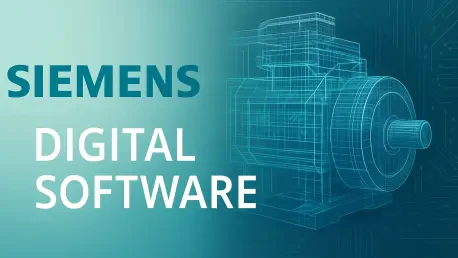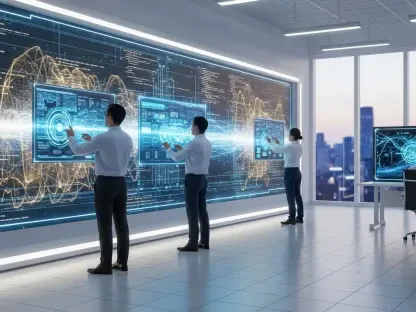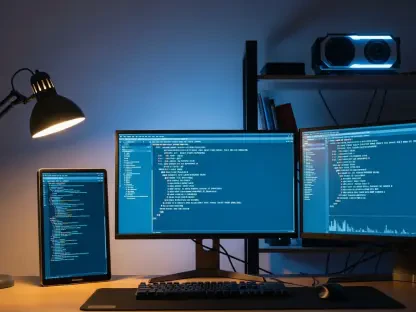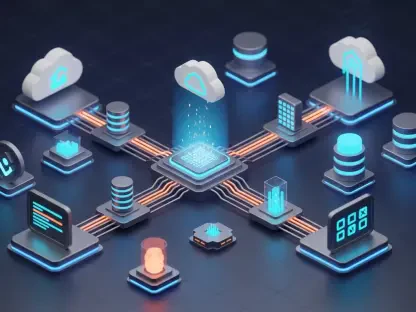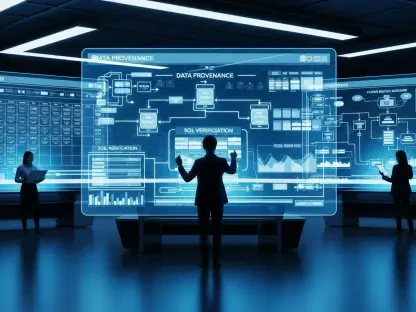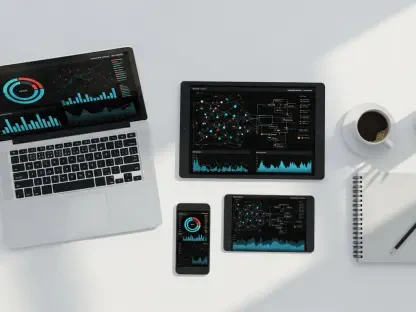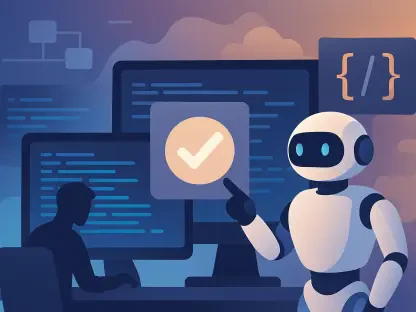In a world increasingly driven by the urgent need to combat climate change and meet stringent environmental regulations, the industrial sector faces mounting pressure to innovate responsibly. Imagine a manufacturing landscape where every design decision, from material selection to end-of-life recycling, is guided by real-time data and predictive insights, ensuring not just profitability but also a reduced ecological footprint. Siemens Digital Industries Software has stepped into this critical space with a groundbreaking update to its Teamcenter software, introducing AI-powered tools that revolutionize product lifecycle management. This advancement, centered on sustainability, equips designers and engineers with the means to create products that align with environmental goals while maintaining efficiency and compliance. By embedding intelligence into every stage of development, Siemens is paving the way for a future where industrial innovation and environmental stewardship are seamlessly intertwined.
Revolutionizing Product Lifecycle Management with AI
Integrating Intelligence for Sustainable Outcomes
Siemens has taken a bold leap forward by enhancing its Teamcenter software with AI-driven Lifecycle Assessment capabilities, a move that redefines how industries approach product design and manufacturing. This update empowers teams to access contextual insights derived from supply chain data and predictive analytics, enabling smarter decision-making from the earliest stages of development. The focus on sustainability is evident as the software provides real-time environmental data, helping engineers and designers optimize material choices and prioritize eco-design principles such as modularity and recyclability. By breaking down traditional data silos, this solution fosters collaboration across departments, ensuring that sustainability is not an afterthought but a core component of the creative process. The result is a streamlined workflow where environmental responsibility and business objectives are balanced with unprecedented precision, setting a new standard for modern manufacturing practices.
Empowering Teams with Real-Time Insights
Beyond the integration of AI, Siemens’ updated platform stands out for its ability to deliver actionable insights directly within engineering workflows, transforming how teams address complex challenges. Designers can now access ISO-compliant reports on environmental impact, including detailed visibility into indirect greenhouse gas emissions across scopes. This capability ensures that every decision is informed by a comprehensive understanding of a product’s ecological footprint, from raw material extraction to disposal. Furthermore, the software supports multi-criteria simulations tied to the bill of materials, allowing for nuanced trade-offs between cost, performance, and sustainability. Such tools enable companies to anticipate regulatory demands and market expectations, positioning them to innovate proactively. By embedding these insights into daily operations, Siemens ensures that sustainability becomes an intrinsic part of product development rather than a separate, cumbersome process.
Driving Sustainability as a Core Industrial Value
Collaboration for a Greener Future
A key pillar of Siemens’ latest innovation lies in its strategic collaboration with industry partners to enhance the Teamcenter Sustainability Lifecycle Assessment solution, bringing unparalleled depth to environmental analysis. This partnership focuses on integrating precise data on compliance, risk, and cost into the tools engineers use every day, accelerating the creation of products that are both sustainable and economically viable. The synergy between advanced technology and shared expertise allows for a holistic view of a product’s lifecycle, identifying potential issues early and offering solutions that align with circular economy principles. This collaborative approach not only enhances product master data but also ensures that companies can adapt to evolving global standards with agility. By prioritizing such alliances, Siemens demonstrates a commitment to fostering an ecosystem where sustainability drives innovation across the industrial landscape.
Anticipating Future Needs with Predictive Tools
Looking ahead, Siemens positions itself as a leader by equipping industries with predictive analytics that address not just current environmental challenges but also future demands. The AI capabilities within the Teamcenter software anticipate shifts in regulatory landscapes and consumer preferences, providing a forward-thinking framework for product design. This proactive stance enables manufacturers to stay ahead of compliance requirements while optimizing for long-term profitability through sustainable practices. The emphasis on lifecycle intelligence means that every stage of a product’s journey is scrutinized for improvement, from reducing emissions in production to enhancing end-of-life recyclability. Such foresight reflects a broader industry trend where sustainability is no longer optional but a fundamental driver of success, and Siemens’ tools ensure that businesses are well-prepared to navigate this evolving terrain with confidence and clarity.
Reflecting on a Sustainable Industrial Shift
Reflecting on Siemens’ advancements, it becomes clear that the integration of AI into product lifecycle management marks a pivotal moment for the industry. The introduction of real-time environmental data and predictive insights reshapes how manufacturers approach design, embedding sustainability into the core of their operations. Looking forward, the challenge lies in scaling these innovations across diverse sectors, ensuring that even smaller enterprises can adopt such transformative tools. A critical next step involves fostering wider industry collaboration to standardize eco-design practices, while continued investment in AI research could further refine predictive capabilities. Additionally, educational initiatives to train the next generation of engineers in sustainable methodologies will be essential. By building on this foundation, Siemens and its partners can drive a lasting shift toward a manufacturing world where environmental stewardship and economic success are not just aligned, but mutually reinforcing.
